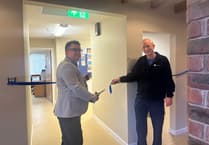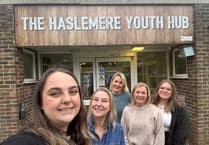"We need more young people in politics” – a phrase I hear often from family, friends, residents on the doorstep, and colleagues at Waverley Borough Council. As our communities face evolving challenges – whether economic inequality, social justice, or climate change –young people are often at the forefront of innovation and activism. Yet, their voices remain marginalised in decision-making, particularly at the local level. While many agree that young people should engage more in politics, I believe that now, more than ever, we need fresh perspectives from hard-working young individuals.
Young people, especially those under 30, experience issues distinct from older generations. Affordable housing, education, and employment opportunities shape our lives in unique ways. While these concerns are not more important than those of older generations, they are fundamentally different. However, they remain underrepresented in policy discussions.
One pressing issue is the recent increase in employers' National Insurance contributions, introduced by the Labour government. In areas like Waverley, where small businesses dominate, this change discourages hiring young employees, forcing them to either commute long distances or relocate, further weakening our high streets. Without young professionals, local businesses struggle, and our communities lose vitality.

Housing affordability remains another critical concern. Surrey Hills offers natural beauty with reasonable access to London, making it desirable for young families. Yet, homeownership remains out of reach due to soaring house prices and stagnant wages. In the 1970s, homes cost about three times the average salary, with lower deposits and easier mortgage access. Today, the average house price exceeds eight times the typical salary, requiring deposits of 10-20 per cent, making homeownership increasingly unattainable. Rent prices, stricter lending criteria, and slow wage growth have further eroded opportunities for young people. How many councillors truly understand this struggle? How many have experienced it themselves?
Protecting our green spaces, a cause close to my heart, bridges personal well-being with sustainability. In Surrey, we must balance preserving our Areas of Outstanding Natural Beauty (AONB) with Labour’s mandate for 1.5 million new homes. Ensuring young voices are included in shaping these policies is essential, as we will live with the consequences for decades to come.
Beyond the issues themselves, young people bring valuable contributions. The average UK councillor is 60 years old; only 16 per cent are under 45, while 42 per cent are 65 or older. This lack of youth representation limits fresh thinking, innovation, and adaptability. What potential solutions are being missed by not having younger voices at the table?
Growing up in the digital age, I saw an outdated system burdened by inefficiencies. Councils struggle with limited resources and mounting problems. My contribution as a young councillor includes leveraging social media to enhance public engagement and transparency. Communities deserve access to democratic processes and decision-making that affects their daily lives.
As a borough councillor, my civic responsibility has only deepened. More young people must be encouraged to participate in local politics – not only to represent their generation but to bring fresh ideas, energy, and solutions that benefit all.
By WBC Cllr Phoebe Sullivan




